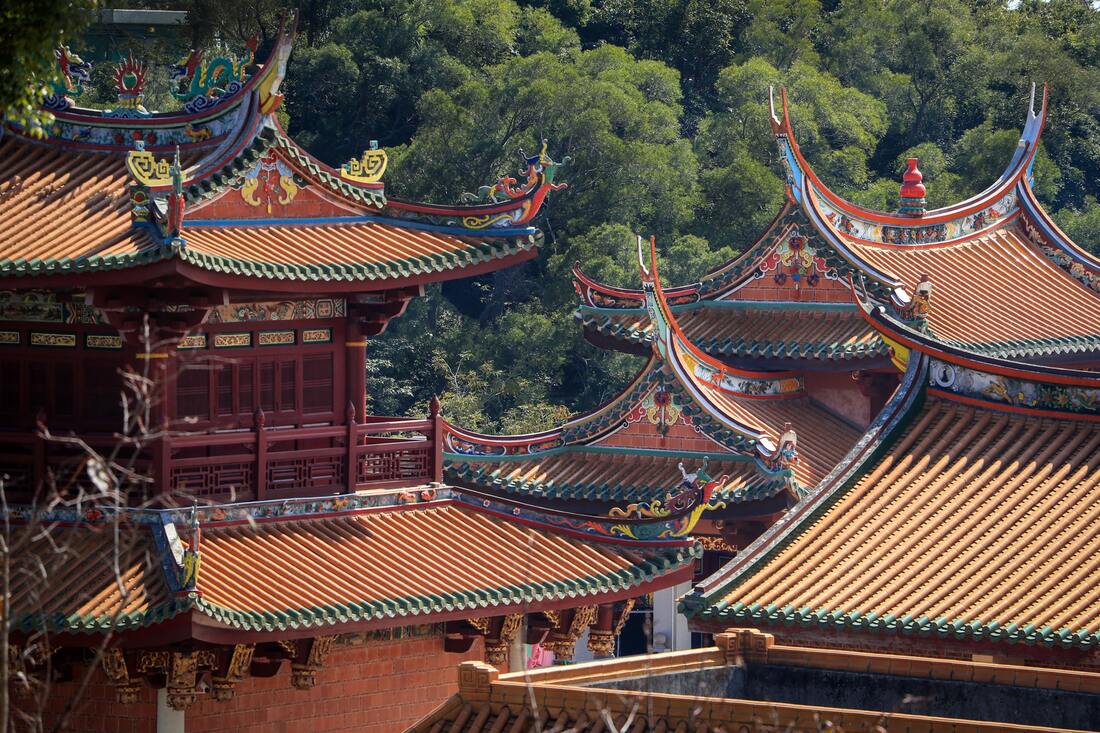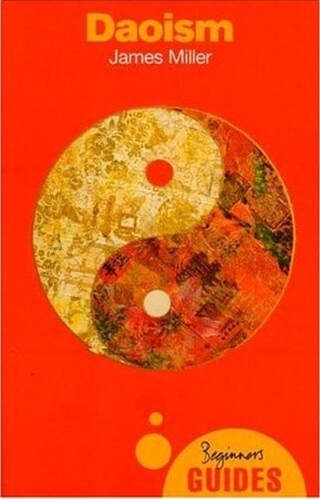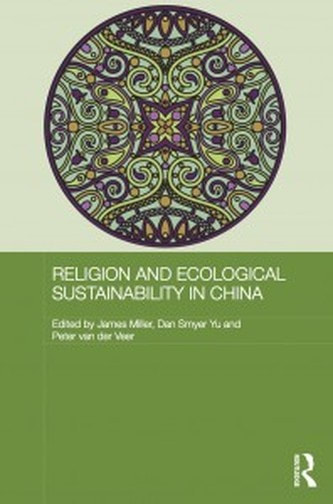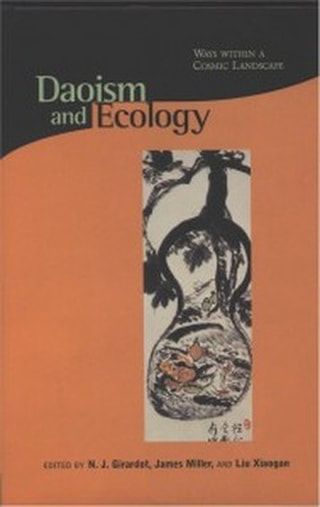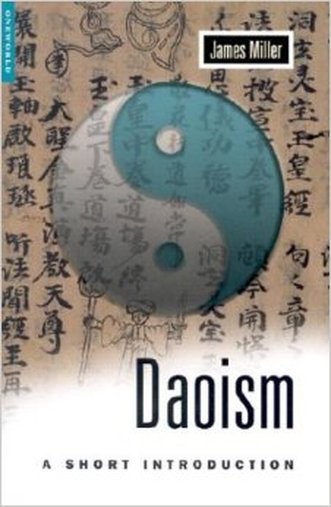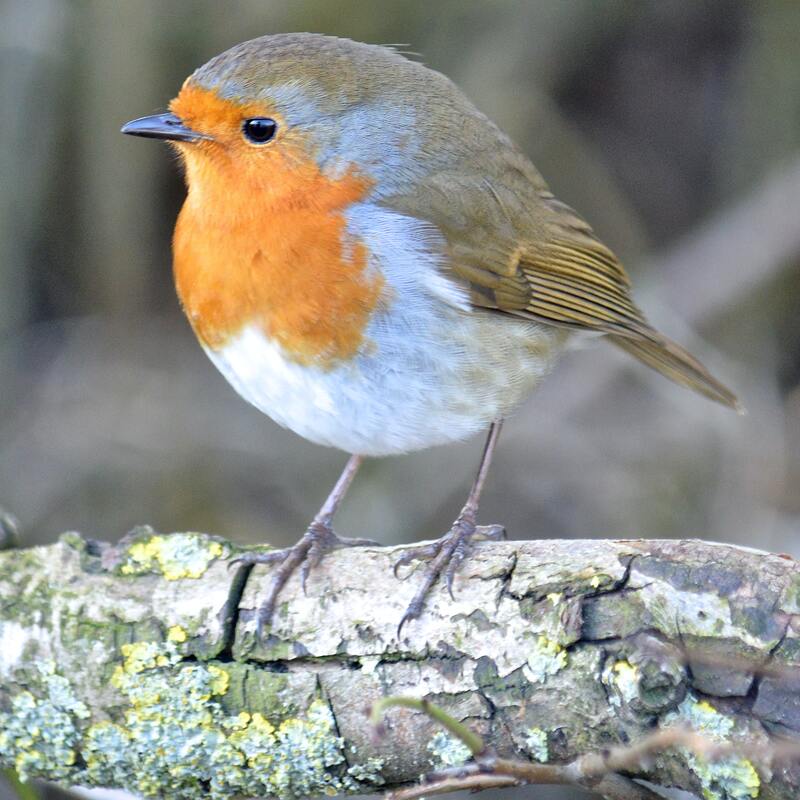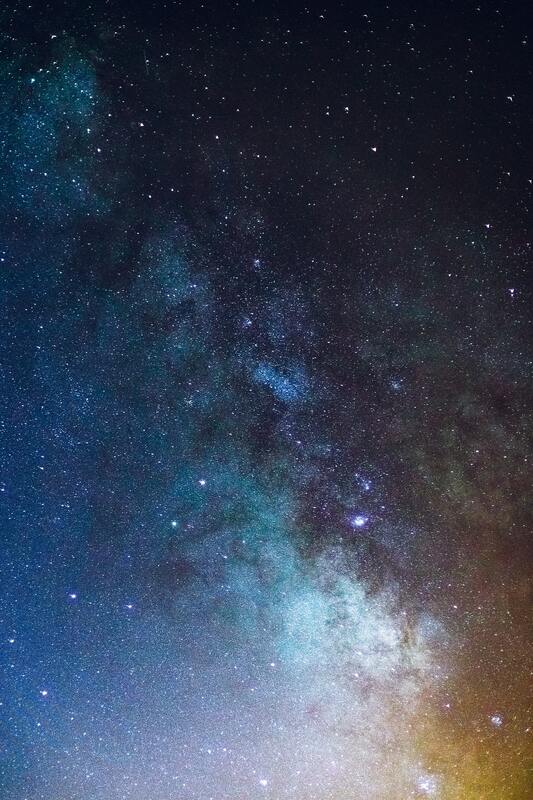- Home
- Process Worldview
- Community
- Art and Music
- Whitehead and Process Thinking
- Podcasts
- Spirituality
- Ecological Civilization
- Education
- Contact
- Social Justice
- Science
- Animals
- Sacred Poems
- Whitehead Videos
- Index of All Titles
- Practicing Process Thought
- Process Spirituality: A Spiritual Alphabet
- Recent Posts
Eight Ideas Worth Considering
that resonate with Process Philosophy
selected insights and videos from James Miller
James Miller is Professor of Chinese Studies in the School of Religion at Queens University in Canada. If we want to think about the relationship of Daoism to climate change, ecological civilizations, and sustainable communities, his writings can be a point of departure. He explains that, from a Daoist perspective, there can be a problem with the language of environmentalism. The word "environment" can too easily suggest a passive object upon which we gaze, extrinsic to our subjectivity, when in fact (1) the hills and rivers, the biosphere and atmosphere are active, filled with self-creativity, (2) we ourselves are part of, not apart from, this larger web of creativity, and (3) the energies of the web of creativity are within our bodies, even as they are also beyond our bodies. It follows (4) that traditional Daoist practices of body awareness, amid which we explore sensations within our bodies, can contribute to our overall ecological sensitivity, as complementary to more discursive practices such as reading books and listening to talks.
Each of these ideas resonates with the philosophy of organism developed by Alfred North Whitehead, which influences the ongoing social movement called process philosophy, process theology, or, for short, process thought. As we seek to live in harmony with the more than human world and with one another, as we use our talents and energies to help create a world that is more just, sustainable and beautiful, we can turn to written texts and oral speech (Miller calls them discursive approaches) but, so we learn from Daoism we can also turn to the wisdom of our own bodies as accessed with help from traditional Daoist practices. And we can turn to the ideas of Daoism so effectively and persuasively presented by James Miller.
-- Jay McDaniel, 4/10/21
Each of these ideas resonates with the philosophy of organism developed by Alfred North Whitehead, which influences the ongoing social movement called process philosophy, process theology, or, for short, process thought. As we seek to live in harmony with the more than human world and with one another, as we use our talents and energies to help create a world that is more just, sustainable and beautiful, we can turn to written texts and oral speech (Miller calls them discursive approaches) but, so we learn from Daoism we can also turn to the wisdom of our own bodies as accessed with help from traditional Daoist practices. And we can turn to the ideas of Daoism so effectively and persuasively presented by James Miller.
-- Jay McDaniel, 4/10/21
The universe is a single, vital organism -- and we are inside this organism, not outside it."The Daoist universe is one, but infinitely diverse. Its unity is implied by the fact that all dimensions of existence, from the budding of a flower to the orbit of the stars, may be denominated in terms of Qi(ch’i) the fundamental energy-matter of the universe whose dynamic pattern is a cosmic heartbeat of expansion (yang) and contraction (yin). Its diversity is a function of the complex interaction of the myriad cosmic processes both light and fluid and heavy and dense. The universe is a single, vital organism, not created according to some fixed principle but spontaneously regenerating itself." Everything is breathing."Traditional Chinese culture views the body not as a discrete object set apart from its environment, but as a dynamic system in which vital fluids are exchanged between the inner body and their environment. Central to this view is the concept of Qi (Ch’i) 气 a complex term sometimes translated as vital breath, spirit, or pneuma. The most fundamental form of Qi is the air we breathe that gives us life." The world outside our body is a world inside our body."The Daoist religious tradition offers a wide repertoire of body cultivation practices that focus on generating a phenomenological sensitivity to the inner body and its location within the world. These practices can be understood from the contemporary Western theoretical perspectives developed by Merleau-Ponty and Richard Shusterman. Merleau-Ponty proposed that the body constitutes the basis for phenomenological experience but did not develop the idea of the experience of the inner body that is so vital to Indian and Chinese body cultivation traditions. Richard Shusterman proposed the concept of “somaesthetics” or methods of training the body’s experience of the world, but did not consider the value of this from an ecophenomenological point of view. Extending these theoretical perspectives to interpret Daoist cultivation methods reveals that Daoists aim to dissolve the experiential boundary between the body and the world and create an experience of the mutual interpenetration of the body and the world. Such an experience can form the aesthetic basis for cultivating ecological sensitivity." The ideal is to become translucent to the environment without losing our individuality."The Western understanding of Daoism has been rooted chiefly in the classical philosophical tradition of Laozi (Lao Tzu) and Zhuangzi (Chuang tzu). This tradition, replete with organic metaphors and distrustful of the complexities of civilization, is immediately appealing to those who are tempted to still the Western rage for order with the natural harmonies of Eastern philosophy. These early texts, however, present us not only with the bearded wisdom of kindly sages but with evidence of meditational theories and religious disciplines that were systematized in the flourishing of Daoist religion after the Han dynasty (206 BCE–220 CE). This religious tradition is emphasized here because it manifests clearly the ecological sensibility that is latent in those early texts." |
Daoism begins with a new mental attitude toward the cosmos and a new approach to our bodies."Daoism proposes a comprehensive and radical restructuring of the way in which we conceive of our relationship to nature and our cosmic environment. This imaginative act does not readily lend itself to the solution of the problems of modern society except inasmuch as it challenges the very foundations of our economic, political, scientific, and intellectual structures. At the same time, however, as Daoism becomes more influential in the West, even as it is misunderstood, it surely exerts a positive influence with respect to understanding what it means to be embedded in a cosmic ecology. The language of environmentalism can suggest a problematic dualism."The language of 'environment' continues the false notion that nature constitutes an objective reality extrinsic to human subjectivity, accessible through science, transformable through engineering. This paradigm gives us the sense that the environment is something outside us that we can save or preserve through science and technology or other modes of intervention. The reality from a Daoist perspective is that there is no such thing as an 'environment' upon which humans individually or collectively act. Conversely there is no 'environment' to be 'saved' or 'preserved.' Daoist thought posits multiple, co-creative subjectivities rather than a discourse of subjective agents who act on passive objects. This correlational agency is visualized in terms of the interdependence of landscape and body. Each is mapped upon the other. Qi flows through the landscape just as it does through human bodies. Both are mutually implicated, and mutually co-constituting." Everything is always changing."If we turn to the Daodejing, we discover that the dominant motif of creation is not that of separation or hierarchy but that of reproduction or generation. The Dao is imaged as a mother who gives birth to the One, the One gives birth to the two, the two give birth to the three, and the three give birth to the ten thousand things. This recursive, recombinatory, fractal-like process depicts the emergence of the ten thousand things of the cosmos as the result of a fertile, agglutinative process in which the one pregnant with itself, gives birth to an even more pregnant two, and this process of gestation and birth continues irrepressibly until we have the flood of beings, processes, and events that constitute the known world. Creation is here imaged as a process of unstoppable fecundity rather than a process of clarification and separation." |
Ordinary modes of perception need to be broken down.
"So long as people urge others to respect, heal, or value nature as an object beyond the hermetically-sealed walls of their bodies, they subtly and unconsciously reinforce the absolute separation of the mind from the world. Such an approach to environmentalism is doomed to failure. Embodied traditions such as Daoist cultivation could play an important role in teaching people how to overcome this dualism, and how to create alternative experiences of the world not as external to body, but within the body. The Daoist experience of pervasion is predicated on the possibility of the world flooding into the body and the body flooding into the world. Such transgressive experiences may serve to break down the ordinary perception of a world disconnected from the body of the individual. In their place such experiences could generate an ecological aesthesis, a psychosomatic sensitivity to the mutual implication of the lived body and the lived world. Such a sensitivity could serve as a much-needed complement to discursive modes of environmental action, such as earth charters, policies, ethics and legislation."
---James Miller. 2014. “Ecology, Aesthetics and Daoist Body Cultivation.”
James Miller offers a thirty minute interview on the state of religion in China |
James Miller at University of Southern California’s US-China Institute on November 19, 2014. |
The Daoist Side of Whitehead
reflections on Whitehead's idea of
Spontaneity as an ultimate reality
"Spontaneity, originality of decision, belongs to the essence of each actual occasion. It is the supreme expression of individuality: its conformal subjective form is the freedom of enjoyment derived from the enjoyment of freedom. Freshness, zest, and the extra keenness of intensity arise from it" - Alfred North Whitehead, Adventures of Ideas
What is the essence of actuality? For Whitehead it is spontaneity: an act of self-creativity by which an entity creates itself in response to what influences it: the past actual world, the surrounding environment, pure potentialities, an anticipated future. This spontaneity is an act of decision: a 'cutting off' of certain possibilities for responding to these influences and an actualization of others.
The act itself doesn't come from anywhere. It is not created by the past or the future; it is not created by God. It cannot be explained by reference to external causes. It is the internal freedom of each and every entity. The entity's spontaneity.
Everywhere we look, around us and with us, we see the self-expression of spontaneity. The hills and rivers, the trees and stars, the planets and galaxies, the energies and archetypes. Thomas Berry was right to say that the universe is an ongoing act of celebration. The need in our time is to learn to see the universe this way. This does not mean that all is good. Spontaneity often unfolds tragically. But it does mean that there is something exuberant about life, something that leaps, bubbles, and overflows. And it means that this something is restless as well; it never quite stays the same. It is, in Whitehead's language, a creative advance into novelty.
And where does God fit into this? For Whitehead God is not the Spontaneity itself. Whithead speaks of the Spontaneity as Creativity in Process and Reality; and sees God as the primordial expression of it, but not the only expression. Practically speaking, this means that as the actualities of our world have a freedom of their own, and a capacity for enjoying freedom, that cannot be controlled, and need not be controlled, by God.
God's purpose is to work with the freedom of the universe in ways that bring about diversity, community, exuberance, and, perhaps especially in the human sphere, love. The good news is that God is Spontaneity, too.
Twelve Key Ideas
- Whitehead invites us to recognize that we live in an exuberant, self-creative universe grounded in the Spontaneity of each and every actual entity.
- In order to sense the ultimacy of Spontaneity, it is important to turn the mind toward the particularities of life: this bird, this face, this water, this voice, this sound, this rain.
- The exuberance of the universe is seen in its multiplicity and variety, its create advance into novelty, and its countless forms of beauty. The universe is alive and restless: leaping, bubbling and overflowing.
- In Process and Reality Whitehead speaks of Spontaneity as the self-creativity of each actual entity as it aims at satisfaction; in Adventures of Ideas he speaks of spontaneity as spontaneity. See the passages below.
- There is an order in the universe of which the "laws of nature" are an instance: e.g. the laws of electromagnetism and gravity. But this order arises out of the Spontaneity itself.
- Spontaneity includes the spontaneity of God, whose primordial nature orders the pure potentialities (eternal objects).
- When Whitehead speaks of Creativity as the ultimate reality in Process and Reality, he is speaking not only of the creative advance into novelty but also of the self-creativity of each novel occasion.
- For Whitehead, spontaneity is the ultimate reality and God is its primordial but not exclusive expression.
- The metahysics of Spontaneity challenges Abrahamic sensibilities which seek to locate ultimate reality in God and deny the self-creativity of the world. It points the mind toward the world as well as God.
- The metaphysics of Spontaneity also challenges neo-Platonic and monistic sensibilities which seek to locate ultimate reality in a single source: an undifferentiated One of which all things are manifestations. It points the mind toward multiplicity as well as unity,
- A recognition of Spontaneity as the ultimate reality includes a recognition (1) that the world is as real as God, (2) that God needs the world just as the world needs God, (3) that not all things happen for the good, (4) that the beauty of the world is not the product of divine agency alone, but also the agency of the universe itself.
- It also includes a recognition, highlighted by Andrew Davis, that Spontaneity never occurs in isolation from other realities which are likewise self-creative or self-determining, and which have causal influence on the actual entity at issue. Thus Spontaneity of an individual creature is inescapably and delightfully relational. The ultimate reality of Spontaneity is complemented by the ultimate reality of Relationality.
Excerpts from Whitehead on
Spontaneity and Self-Creativity
Creativity is the ultimate reality; God is its primordial expression
In all philosophic theory there is an ultimate which is actual in virtue of its accidents. It is only then capable of characterization through its accidental embodiments, and apart from these accidents is devoid of [11] actuality. In the philosophy of organism this ultimate is termed ‘creativity’; and God is its primordial, non-temporal accident.* In monistic philosophies, Spinoza's or absolute idealism, this ultimate is God, who is also equivalently termed ‘The Absolute.’ In such monistic schemes, the ultimate is illegitimately allowed a final, ‘eminent’ reality, beyond that ascribed to any of its accidents. In this general position the philosophy of organism seems to approximate more to some strains of Indian, or Chinese, thought, than to western Asiatic, or European, thought. One side makes process ultimate; the other side makes fact ultimate.
Whitehead, Alfred North. Process and Reality
The world is self-creative The Primordial Nature of God is incomparably Intense in its Spontaneity |
Spontaneity is the essence of Soul Nothing is completely determined by the past. Spontaneity in the past and present cannot be rationalized, or traced to antecedents. It is given. |
